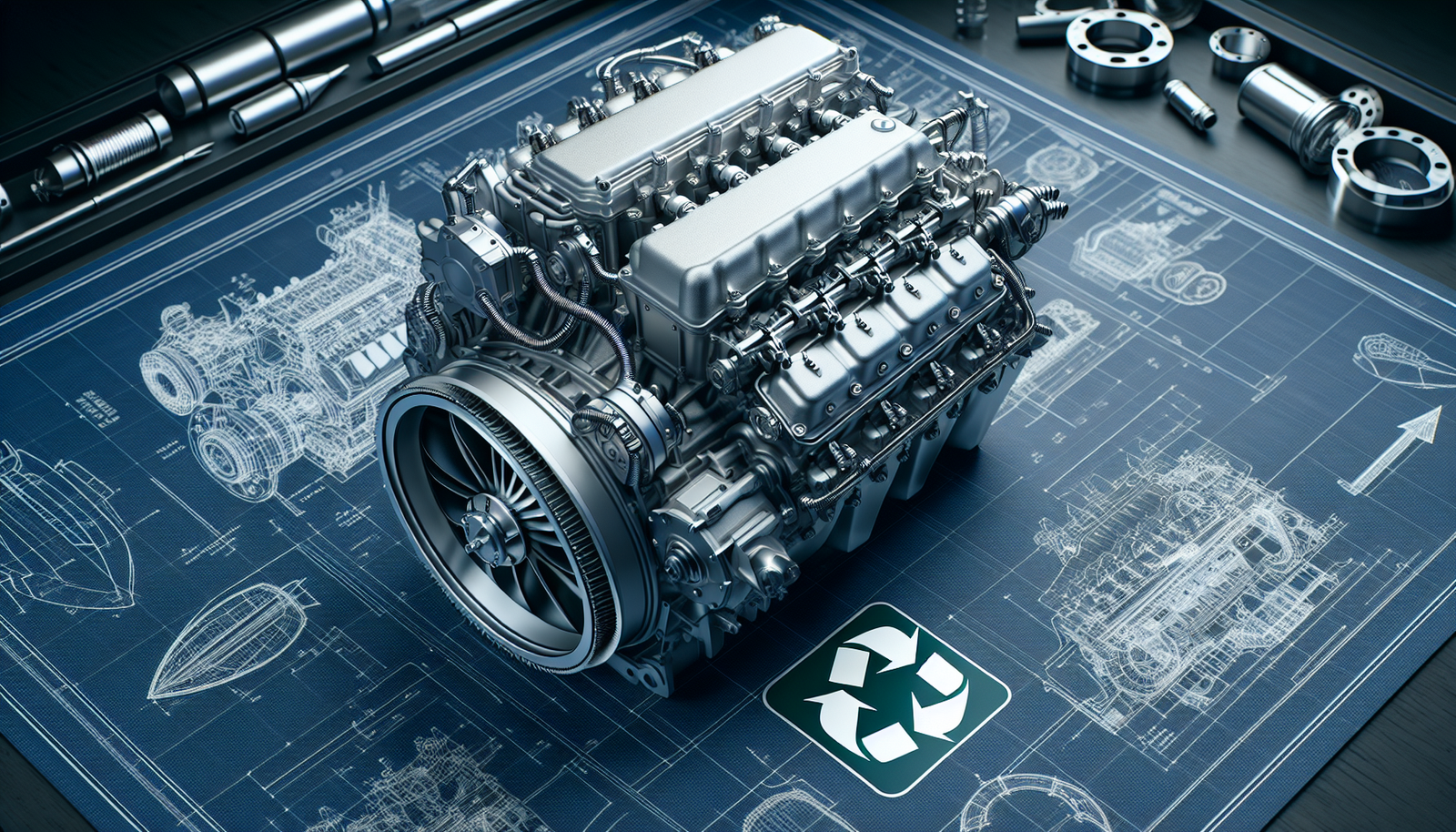If you’re a boating enthusiast, it’s essential to keep ahead of the curve with the latest boat engine technologies. This year has seen an explosion of incredible innovations. From cleaner, more efficient engines cutting your fuel bill while helping the environment, to ingenious design improvements maximizing power output without adding weight, these breakthroughs are changing the game. The article “The Best boat engine technology innovations of the Year” gives you a front-row seat to these amazing developments, unlocking potential you never knew your boat could have. It’s time to embrace the future of boating performance.
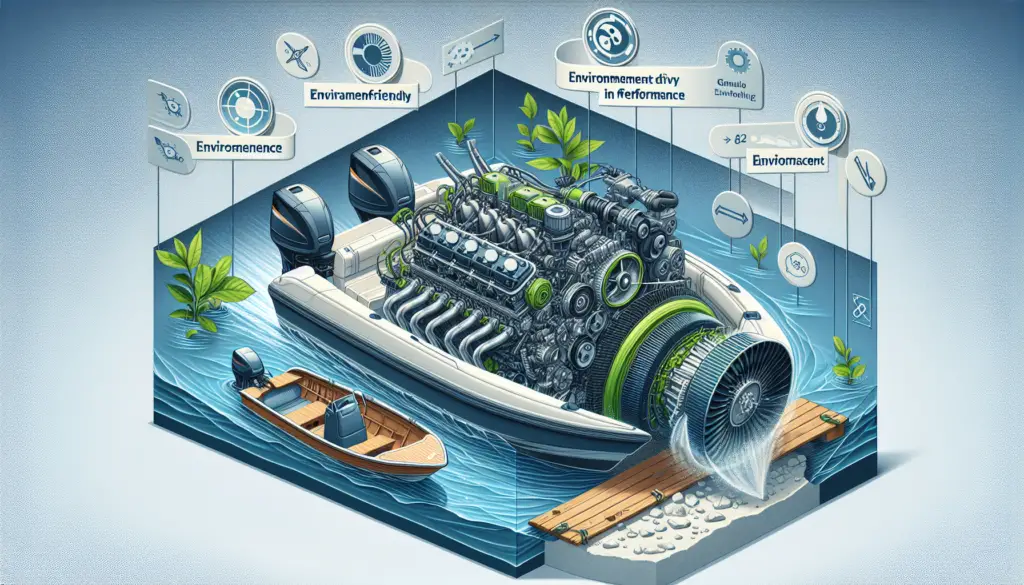
Evolution of Boat Engine Technology
The progression of boat engine technology is a fascinating narrative that features outstanding achievements in human ingenuity, spanning several centuries.
Historical context of boat engines
Dating back as far as ancient times, boats were primarily propelled by human force or wind. The evolution of boat engine technology kick-started in the late 18th century when the first steam-powered boat was invented. This led to more reliable and convenient water transportation. The 20th century was a period of rapid innovation, with the introduction of internal combustion engines that used gasoline or diesel. These engines dramatically increased the speed and efficiency of boats, transforming boating from a necessity to an enjoyable leisure activity.
Improvements in recent years
In recent years, considerable advancements have been made in boat engine technology. These include improvements in fuel efficiency and the introduction of hybrid and electric engines. The quest for more environmentally friendly options has seen the emergence of engines designed to minimize emissions and other types of pollution. Additionally, AI technology started to play a significant role in the optimization and control of boat engines, marking the onset of the era of smart engines.
Current trends in boat engine technology
The current trends in boat engine technology are centered around improving efficiency, reducing environmental impact, and embracing digitalization. There is a rise in the demand for hybrid and electric engines as boaters become more conscious of their environmental footprint. Similarly, AI technology and smart features are fast becoming standard as boaters seek greater convenience, safety, and improved performance from their engines.
Advancements in Engine Efficiency
Engine efficiency is one of the most crucial factors in the development of boat engines.
Role of efficiency in boat engine design
Achieving high engine efficiency is paramount in boat engine design as it directly translates into better fuel economy, improved performance, less pollution, and a more economical operation. It is all about getting the most out of every drop of fuel burned – more power with less waste.
Cutting-edge fuel-efficient engines
In the pursuit of optimum fuel economy, boat engine manufacturers are constantly innovating. For example, direct fuel injection technology delivers fuel more precisely, thus reducing waste and increasing efficiency. Also, variable valve timing adjusts the flow of air and fuel to the engine to maximize performance and efficiency. Additionally, engines with turbochargers and superchargers increase the density of air entering the engine, allowing more fuel to be combusted, thus improving power output.
Impact of efficiency improvements on boating industry
Advancements in engine efficiency have significantly transformed the boating industry. More efficient engines are not just cheaper to run, they also offer better performance and increased range. This has opened up boating to a wider market, including those who are cost-conscious. Also, the move towards more efficient engines has played a part in reducing the environmental impact of boating, making it a more sustainable hobby or mode of transport.
Hybrid Boat Engines
Hybrid boat engines combine the advantages of both traditional internal combustion engines and electric motors.
What is a hybrid boat engine?
A hybrid boat engine, like its automotive equivalent, employs both an internal combustion engine and an electric motor. The motor can power the boat at low speeds, while the internal combustion engine kicks in at higher speeds or when more power is needed. Some hybrid systems store energy generated from the combustion engine or regenerative braking to use later, offering further improvements in efficiency.
Top hybrid boat engines
There are numerous hybrid boat engines available on the market that offer superior performance and fuel efficiency. These hybrid engines are not just eco-friendly but also quieter than their traditional counterparts, hence providing a peaceful and relaxing boating experience. It’s important to research well and select a hybrid engine that best fits your boating requirements.
Benefits and challenges of hybrid engines
Hybrid boat engines come with many benefits, including fuel efficiency, lower emissions, and quieter operation. They also offer flexibility, with the option to use electric power for silent, emission-free cruising or to switch to the combustion engine for faster speeds. However, these engines do come with some challenges. They can be more expensive to purchase and install than traditional engines. Also, the technology and infrastructure to service and maintain these engines may not be readily available everywhere.
Electric Boat Engines
Electric boat engines are on the rise as boaters seek more sustainable and efficient options.
Introduction to electric boat engines
Electric boat engines, just like electric car engines, run on electric power stored in batteries. They create zero emissions, run silently, and require much less maintenance than their combustion engine counterparts. Electric engines have made tremendous strides in recent years, overcoming earlier limitations such as short range and long charging times—making them an increasingly appealing choice for boaters.
Leading electric boat engines
Several boat manufacturers and third-party manufacturers offer electric boat engines that deliver impressive power and performance. These engines typically come with lithium-ion batteries, known for their high energy density and long lifespan. While it’s important to assess factors like range, power output, and reliability when selecting an electric engine, considering the charging infrastructure available is just as crucial.
The future of electric in boating
The future of electric in boating looks extremely promising. As battery technology continues to improve, we can expect to see electric boat engines with longer range and shorter charging times. Also, there will likely be an increase in charging infrastructure, making electric boating even more convenient. With the escalating commitment to environmental sustainability, electric boating is set to become mainstream sooner than later.
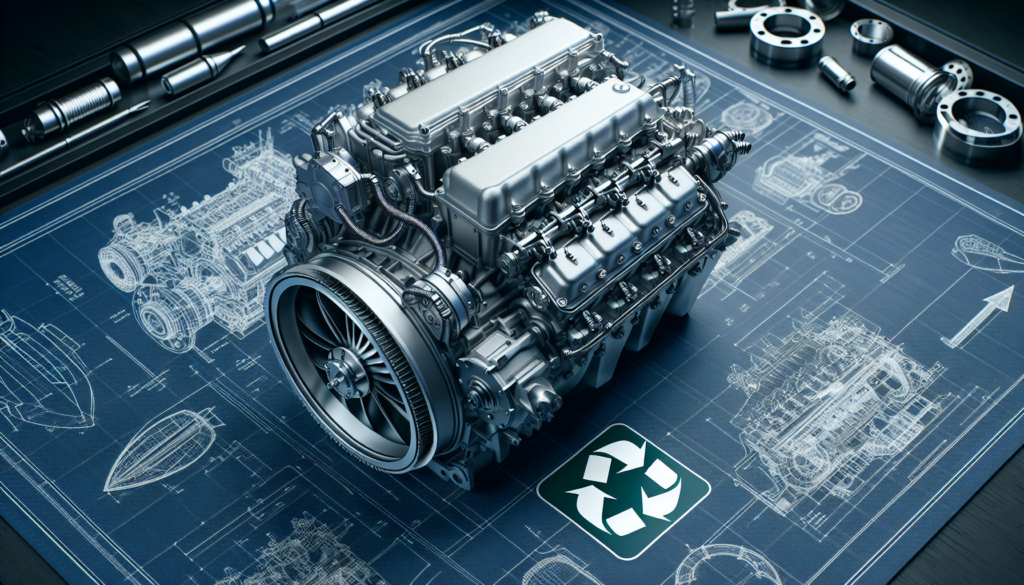
Eco-Friendly Boat Engine Options
The boating industry has started taking considerable steps towards environmental sustainability.
Environmental impact of boat engines
Traditional boat engines, particularly those running on two-stroke technology, are notorious for producing high levels of exhaust emissions. These emissions contribute to air and water pollution, posing risks to wildlife and human health. Noise pollution is another environmental impact associated with boat engines, affecting both aquatic life and the overall boating experience.
Evolving technologies promoting sustainability
To mitigate the environmental impact of boat engines, several new technologies are being introduced. These include cleaner-burning four-stroke engines, fuel-efficient hybrid engines, and zero-emissions electric engines. Some manufacturers are even exploring the potential of hydrogen and solar energy. There’s also an increasing focus on reducing engine noise, both for the enjoyment of boaters and to lessen the impact on aquatic life.
Significance of eco-friendliness in engine selection
Selecting a more eco-friendly boat engine is not just good for the environment—it can also provide various practical benefits. These engines often offer better fuel efficiency, resulting in cost savings in the long run. In addition, jurisdictions across the world are increasingly implementing emissions standards and regulations that may restrict the use of more polluting engines. Therefore, choosing a cleaner engine now could help you stay ahead of regulatory changes.
AI in Boat Engine Technology
Artificial intelligence (AI) has started to make its mark in boat engine technology, enhancing performance, efficiency, and safety.
Integration of AI with boat engine technology
AI is increasingly being integrated into boat engine technology. AI algorithms can monitor and analyze engine data in real-time to optimize performance and fuel efficiency. For instance, AI systems can adjust the engine’s operation based on external factors such as sea conditions or the boat’s load.
AI contribution to efficiency and safety
By continuously monitoring engine performance, AI systems can identify patterns and foresee potential issues before they become serious problems. This not only improves efficiency but also enhances safety, as it allows for proactive maintenance. Furthermore, AI technology can incorporate safety features such as collision avoidance and autopilot functionalities, taking the boating experience to the next level.
AI’s future role in boat engines
As AI technology continues to advance, we can expect it to play an even larger role in boat engines. Possibilities include more sophisticated predictive maintenance capabilities, advanced driver-assistance systems, and even fully autonomous boating. AI could also help make boating more accessible to novices by simplifying engine operation and management.
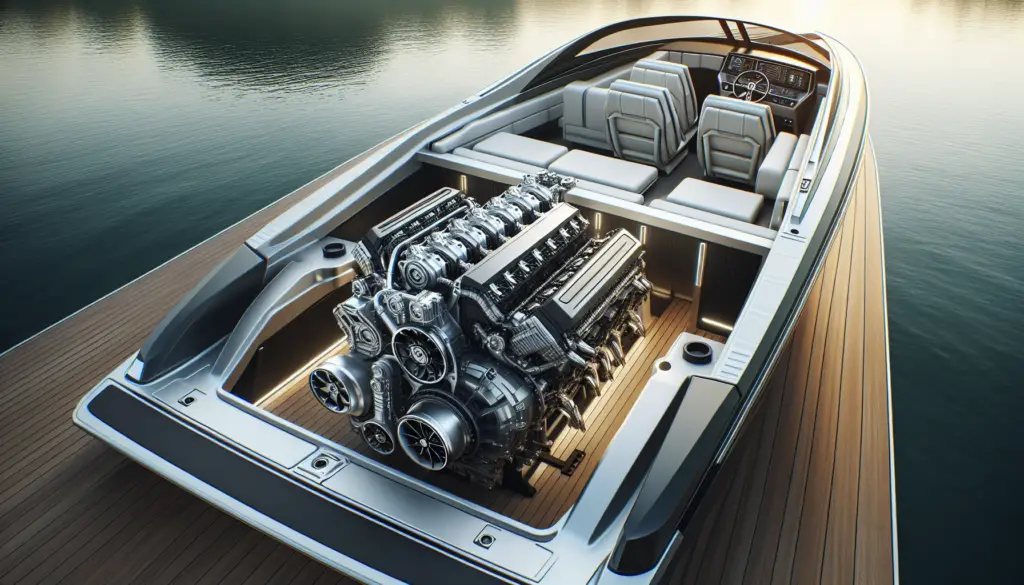
Smart Boat Engines
Smart boat engines, equipped with advanced sensors and digital technology, are revolutionizing the boating experience.
Capabilities of smart boat engines
Smart boat engines feature an array of sensors that monitor various aspects of the engine’s operation and boat’s performance, such as fuel consumption, engine temperature, and speed. This information is fed to onboard computers, which can analyze the data in real-time to optimize engine performance, fuel efficiency, and safety. Some smart engines are even capable of self-diagnosis and reporting any potential issues directly to your mobile device or the manufacturer.
How smart engines are revolutionising boating
These engines have greatly simplified engine management and maintenance, making boating more accessible and enjoyable. Today, boaters can get real-time feedback about their boat’s performance and engine health right at their fingertips. This means they can address issues before they compromise the boat’s performance or cause serious damage, saving time and money in the long run.
User-friendly features of smart engines
Many smart boat engines come with user-friendly features such as touchscreen displays and mobile apps. These allow boaters to monitor and adjust engine parameters easily, even remotely. In addition, many smart engines feature GPS and connectivity options, offering functions like location tracking and sending alerts in case of unauthorised movement—providing peace of mind to boat owners.
Improvements in Engine Noise and Vibration Reduction
Excessive engine noise and vibration can detract from the boating experience and have environmental implications.
Issues related to noise and vibration in boat engines
Excessive noise and vibration from boat engines can be irritating for boaters and disruptive for the surrounding environment. Noise pollution can negatively affect marine life and disrupt peaceful waterfront communities. Moreover, excessive vibration can cause discomfort for boaters and wear and tear on the boat structure and equipment.
Technological solutions for noise and vibration reduction
Manufacturers are continuously working on technologies to reduce engine noise and vibration. These include advanced engine mounts, exhaust systems optimized for noise reduction, and improved structural design. Some engines also feature active noise cancellation technology, similar to that found in high-end headphones, which use sound waves to counteract engine noise.
Impact on the boating experience
The reduction of engine noise and vibration significantly enhances the boating experience. It makes boating more comfortable and enjoyable, by allowing boaters to converse easily and listen to music without the constant background roar of the engine. It also helps protect marine life and maintain peace in waterfront communities.
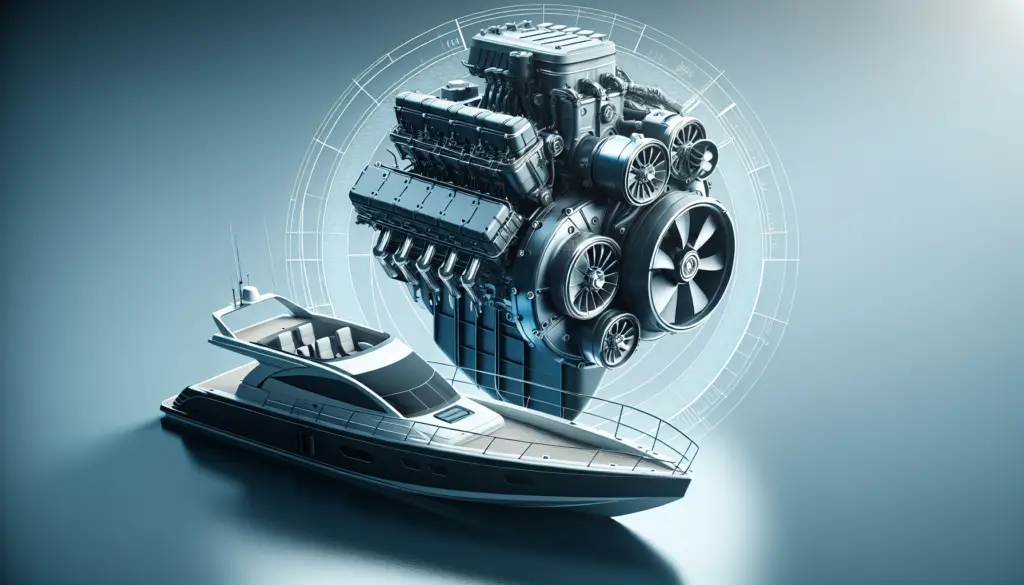
Innovations in Engine Durability and Maintenance
Durability is an essential characteristic of boat engines, influencing their lifespan and affecting the cost of ownership.
Importance of durability in boat engine designs
Durability is a critical factor in boat engine designs. Durable engines can withstand harsh marine environments and run reliably over long periods. In addition, a durable engine requires less frequent and costly repairs, thereby reducing the total cost of ownership and enhancing the resale value of the boat.
Advancements in engine longevity
There have been considerable advancements in enhancing the longevity of boat engines. These include the use of improved materials that resist corrosion and wear, refined engine designs that reduce stress on components, and better lubricants that protect engine parts. Some manufacturers also offer protective coatings and treatments that help the engine withstand harsh marine environments.
Resources for maintenance and troubleshooting
With the advent of digital technology, boat owners now have access to a wealth of resources for maintenance and troubleshooting. Many manufacturers provide mobile apps that give owners real-time data on engine performance and diagnostics, making maintenance easier and proactive. Some boats even have systems that can send data directly to service technicians, who can then diagnose issues remotely and provide advice or schedule repairs.
Notable Manufacturers and Models of the Year
There is a slew of great manufacturers and models in the ever-competitive boat engine market.
Leading boat engine manufacturers
Some of the leading names in the boat engine industry include Mercury Marine, Yamaha, and Volvo Penta. These manufacturers are renowned for their quality, innovation, and broad range of offerings for all types of boats and uses. They continuously push the boundaries of technology to deliver engines that are more powerful, reliable, efficient, and environmentally friendly.
Critically acclaimed boat engine models
Among the critically acclaimed boat engine models of the year, some stand out for their exceptional performance, innovative features, and sustainability credentials. While the best model for you ultimately depends on your specific needs and preferences, engines earning high praise tend to offer a balanced blend of power, efficiency, and innovative features.
What sets these models apart
The engines that stand out in the market typically excel in several key areas. They offer high performance and efficiency, ensuring you get the most out of your fuel. They come with innovative features like smart technologies and AI integration, which enhance convenience and safety. Furthermore, the leading models are designed with sustainability in mind, offering eco-friendly options such as lower emissions or even zero emissions in the case of electric engines.

